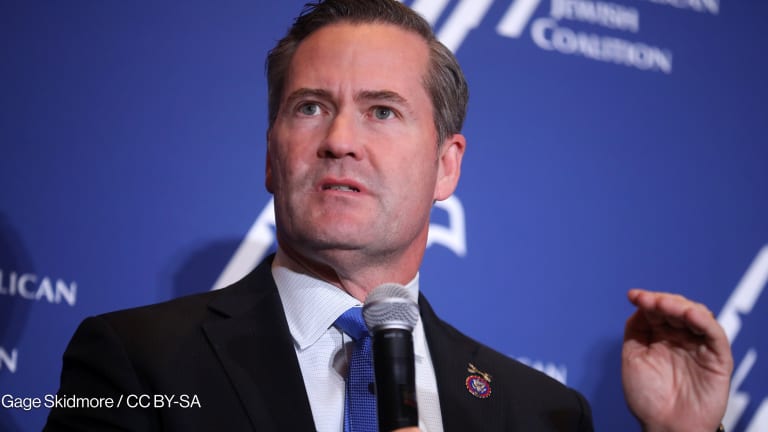
Forget capitalism, forget socialism. Today’s masters of the universe are into longtermism.
The ethical worldview — which places a premium on crafting future-friendly policies — has its own founding moral philosophers, the Oxford scholars William MacAskill and Toby Ord. It has its own Wikileaks entry, a stable of deep-pocketed tech billionaire boosters, including Elon Musk, and was recently the subject of a podcast demonstrating how its precepts have been filtering into the debate over the future of the United Nations.
MacAskill, a trustee for the Centre for Effective Altruism, and Ord, who has advised the U.N. on its strategy for the future, have each written books. MacAskill’s “What We Owe the Future'' and Ord’s “The Precipice” promote the idea that we all have a moral obligation to consider the interests of future generations. That concept has resonated powerfully in an era in which humankind has fashioned the means to destroy itself — from nuclear and biological weapons to global warming, pandemic, and potentially runaway artificial intelligence. Longtermism, MacAskill writes, is “the idea that positively influencing the long term future is a key moral priority of our time.” It’s confronting “the tyranny of the present over the future.”
Defining longtermism can be challenging as it means radically different things to different people, sitting along a spectrum of temporal horizons from five to 25 years to thousands or even millions of years. There is also little agreement on how much weight to place on the rights of future generations versus those living today. But there is a broader consensus that given humanity’s existential challenges, decisions made today will impact the lives of future generations over the coming centuries and beyond and that a broad sweep of developments — like the loss of biodiversity — are already irreversible.
Embracing longtermism can be particularly challenging for democracies like the United States, where the two-year cycle of elections imposes pressures on candidates to address voters’ immediate concerns — like inflation and rising energy costs — that may inhibit long-term strategies. Powerful nationalist political forces — including within the U.S. Republican Party — have achieved political success by embracing the past, and mobilizing opposition to future-friendly policies that constrain fossil fuel extraction, exacerbate global inequalities, and scale back funding for health care, education, and other public goods.
The concept has taken something of a beating in the press in recent weeks because of its association with effective altruism. This philanthropic movement relies heavily on data to determine how to channel resources to charities or institutions that seek to counter long-term threats to humanity. It has also provided a moral defense for billionaires to amass tubs of money on the grounds that they can direct it more efficiently than governments to philanthropic enterprises that benefit the broader humanity.
The movement has been sullied by the downfall of one of its wealthiest cheerleaders, Sam Bankman-Fried, who federal prosecutors indicted for defrauding investors, leading to the collapse of his multi-billion crypto empire. It has also raised concerns that following longtermism to its logical and potentially extreme end could diminish social and civil rights for current inhabitants of the earth in the cause of some utopian vision of the interests of future generations.
But here at Turtle Bay, the U.N. has embraced its own version of longtermism, even if it rarely uses the term and hopes to distance itself from the taint associated with some of its more notorious promoters. Besides, U.N. officials note, the world institution was doing longtermism well before it was a thing. The preamble section of the U.N. Charter, after all, calls for saving “succeeding generations from the scourge of war.”
Road map to the future
In September 2020, world leaders gathered in New York to mark the U.N.’s 75th anniversary issued a declaration calling on the U.N. to produce a report outlining its vision of revising the state of multilateralism and reorienting the world body to better “respond to current and future challenges.”
A year later, in September 2021, U.N. Secretary-General António Guterres issued his road map for the future titled Our Common Agenda, which sets a course for the world body over the next 25 years and beyond. “It is time to think for the long term,” Guterres said at the launch of the initiative.
“Decisions made today will shape the course of the planet for centuries,” according to his report, which seems to draw attention to the rights and interests of the 10.9 billion people expected to be born in this century. “Yet our dominant political and economic incentives remain weighted heavily in favor of the short term and status quo, prioritizing immediate gains at the expense of longer-term human and planetary well-being.”
Guterres proposed establishing a Futures Lab to assess the impact and risks associated with policies over the long run. He also called for reform of the U.N. Trusteeship Council, established to manage decolonization, to promote the interests of future generations; and appointing “a special envoy to ensure that policy and budget decisions take into account their impact on future generations.”
The U.N. secretary-general had also hoped to host a Summit of the Future at the 78th session of the U.N. General Assembly in September 2023, where world leaders would issue a declaration converting his vision into a road map for action. Member states asked him to delay it until 2024 to give them more time to chew over some of his proposals.
Much of the follow-up will be left to governments to determine where this focus on the future ends up. Germany and Namibia have been chosen to lead international negotiations on the U.N. Summit of the Future agenda. The Netherlands and Fiji, meanwhile, are spearheading an intergovernmental negotiation on drafting a formal high-level declaration on future generations that world leaders will hopefully endorse.
Guterres, meanwhile, will produce a series of policy papers early next year to guide the discussion. U.N. officials don't expect member states to endorse all of the secretary-general’s proposals, but they hope to at least provide options.
Some elements of the plan have already faced resistance from governments. The U.S. and other key U.N. Security Council members have effectively killed off the proposal to remake the Trusteeship Council, voicing concern that reopening the U.N. Charter for negotiations could open a Pandora's box. Some low- and middle-income countries have eyed the initiative with suspicion, seeing it as a gimmick to rebrand existing programs and distract attention from the woeful effort to get high-income countries to step up funding for climate change and the Sustainable Development Goals.
The team that drafted Our Common Agenda was led by Volker Türk, then advisor to Guterres, who has since become U.N. high commissioner for human rights. Some contributors drew inspiration from the novel “The Ministry for the Future” by science fiction writer Kim Stanley Robinson, according to one U.N. insider. The book — which tells the tale of a fictional U.N. agency charged with defending the interests of future generations from the plagues of the modern era, from pandemics to global warming — serves as the drafter’s talisman, said the U.N. insider.
But one U.N. official countered that the said novel exerted no influence on the key authors of the U.N. report or on Türk or Guterres, and that any similarities are simply coincidental.
“The team who worked on our common agenda genuinely believe this is a transformative change of perspective, an alternative way of seeing the world,” said Richard Gowan, an expert on the U.N. at the International Crisis Group. “I’m a lot less convinced most U.N. officials or diplomats are really changing the way they think.”
If anything, the U.N. members — facing shrinking budgets and a series of peace and security challenges, including the Russian invasion of Ukraine — have entered an era of “shortermism,” Gowan added. “The long term perspective is a fascinating thing to discuss at a diplomatic dinner party but it isn’t something you base your work on the next morning when you wake up,” he told Devex in a phone interview.
But they have also grown worried that the futuristic branding may backfire. One official pointed out that the Futures Lab has a planning horizon of five to 10 years, not hundreds, thousands, or millions of years.
U.N. officials have sought to distance themselves from the effective altruism movement, noting that the vision of defending the interests of people in the future is embedded in the U.N. Charter and echoed in hundreds of U.N. General Assembly resolutions.
They note that several governments, including Singapore, Finland, and the United Arab Emirates, already have established institutions to prepare for the future. Last month, Finland, which established a parliamentary Committee for the Future in 1993, hosted a summit of similar global committees dealing with the future. Sweden has its so-called ministry of the future, and Wales recently appointed a future generations commissioner, the first in the United Kingdom.
But not everyone might view longtermism as the force that will shape our political future over the coming millennia.
Stephen Walt, the Harvard professor and high priest of political realism, wrote a decade ago in Foreign Policy magazine, that a major, if often overlooked, intellectual force in global politics is something he defined, if partly in jest, as Confusionism — not to be mistaken for the ancient Chinese belief system Confucianism.
“For Confusians, ignorance and stupidity are the real key to understanding state behavior, not fear, greed, ideals, class interests or any of those other things that people think drive world affairs,” he wrote.
Like longtermism.
Update, Jan. 2, 2023: This article has been updated to reflect a remark from a U.N. official who said that Kim Stanley Robinson’s novel exerted no influence on the U.N. report authors or on Türk or Guterres, and that any similarities are simply coincidental.





